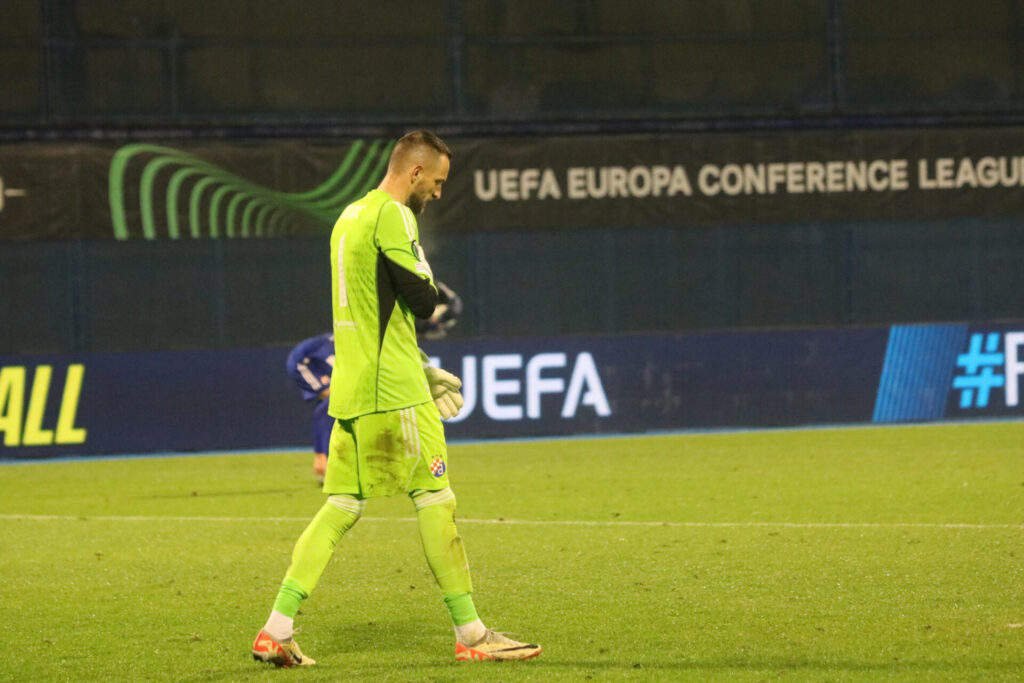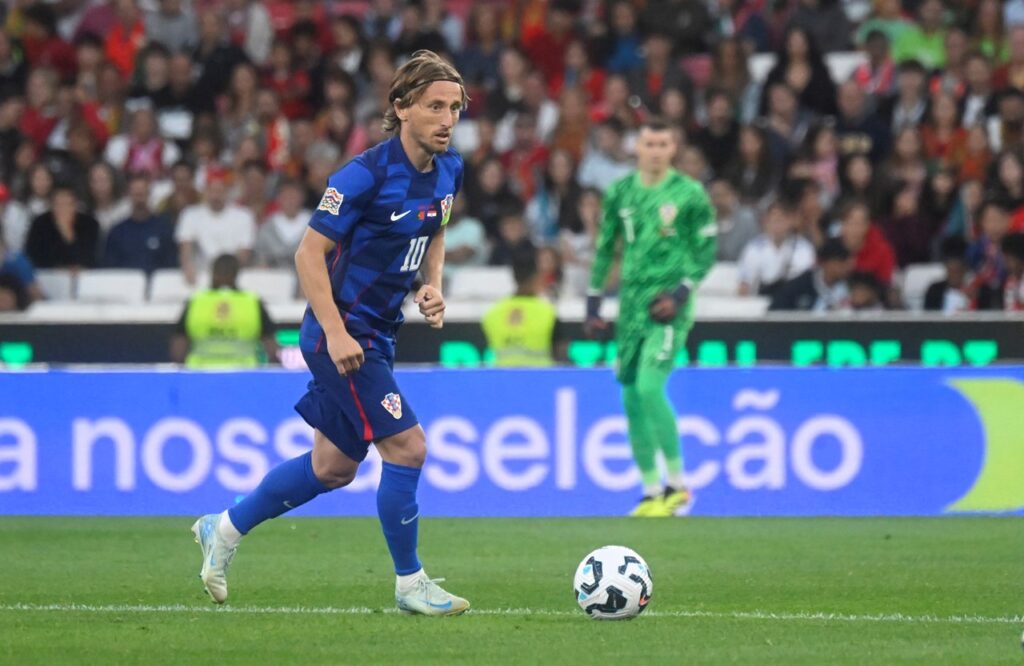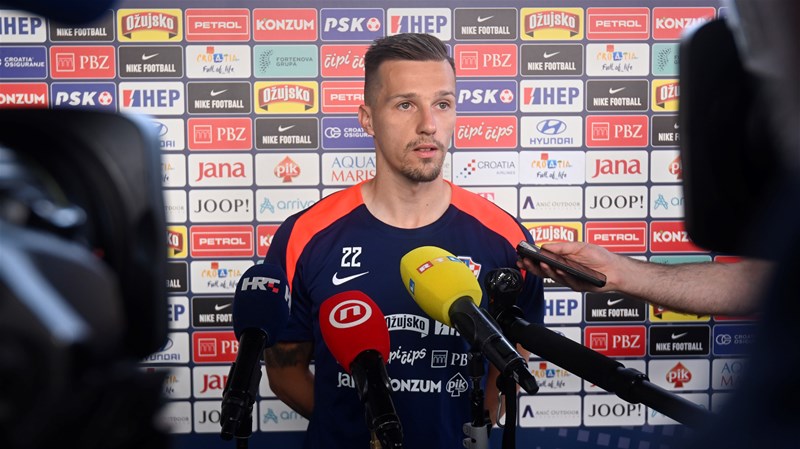Dinamo played another excellent game in the UEFA Champions League and is returning to Zagreb with a complete trophy. It’s just that they get a constant in HNL
SLOVAN BRATISLAVA – DINAMO ZAGREB 1:4 (Strelec 5’/Špikić 10′, Sučić 30′, Kulenović 54′, 72′)
Slovan Bratislava: Takac – Blackman – Kashia (Vojtko 79′), Bajrić, Voet – Ignatenko, Savvidis (Mak 72′) – Barseghyen (Gajdos 87′), Tolic, Marcelli (Metsoko 72′) – Strelec (Mustafić 87′)
Dinamo Zagreb: Zagorac – Ristovski, Theopkile-Cathrine, Torrente, Ogiwara (Pierre-Gabriel 75′) – Sučić (Kačavenda 87′), Mišić – Špikić (Bernauer 75′), Baturina (Ademi 64′), Pjaca (Hoxha 87′ ) – Kulenović
Even before the match, many people marked Dinamo as the favorite of this match, and even the coach of the home team thought so and expressed his admiration for the visitors. No team is in the UEFA Champions League by chance. However, Slovan is still a much weaker team because Dinamo played good football even against stronger teams (except for the match against Bayern at the competition’s opening).
Despite the “slap” already in the fifth minute – when Strelec put the ball into the net from one meter after Torrente cleared Marcelli’s attempt – the Croatian champion quickly recovered his composure and began to retaliate with quick counters. And over time, he had the initiative.
From the first minute, Bjelica set up a somewhat different tactic, opting for a more offensive approach. He set the Zagorac debutant in the goal while he organized the defense in a formation with four players. The wings of the “blue” formation were held by Pjaca and Špikić, ready for quick penetrations. Although the Slovaks often built their defense on shaky foundations, which Dinamo’s attacks easily penetrated, the hosts were highly motivated. A point(s) against the Croatian champions would mean a lot for their status in the elite company, especially after a weak start in the first three rounds.
Slovan opened the game better and had the lead in the fifth minute. But five minutes later, Špikić brought everything back to the beginning, and the score was 1:1. Dinamo went to the break with an advantage. Sučić scored the goal for Dinamo’s turnaround in the 30th minute of the match. Dinamo started the second half better, bringing another goal into the hosts’ net. Pjaca broke through on the left side and crossed into the middle, and the ball happily bounced to Kulenović, who did not have a difficult job at the second goalpost. In the 72nd minute of the match, Kulenović scored his second game goal for the final 4:1 for Dinamo.
Let’s mention how Dinamo’s goalkeeper Danijel Zagorac entered the UEFA Champions League record books and became the fifth oldest player to debut in this competition. Zagorac is 37 years, eight months, and 29 days old, and he got the chance to replace the injured Ivan Nevistić. Only four players in the history of Europe’s elite competition were older than Zagorec in their debut.
The oldest is Australian Mark Schwarzer, who debuted in the UEFA Champions League at 41 and two months old, defending for Chelsea in the match against Steaua Bucharest in December 2013. Dutch goalkeeper Sander Boschker, who played for Twente at 40 and one, is also older than Zagorec. Italian goalkeeper Paolo Orlandoni was 38 years and three months old when he played for Inter in the LP. Spanish forward Christian Stuani was 37 years and 11 months old when he played for Girona in the Champions League.
Who would have hoped that Dinamo would be ahead of Bayern when they received nine pieces in Munich? Only optimists and Dinamo fans likely believed in success. After the embarrassment against Bayern (9:2) and Sergej Jakirović’s dismissal, Dinako flourished in the Champions League. A draw with Monaco (2:2) that should have been a victory, then a guest celebration at Salzburg (0:2) and the demolition of Slovan in Bratislava (1:4).
At this moment, before the end of the 4th round, it is hard to say precisely what Dinamo needs for the new European spring, but one thing is sure – this is a huge step forward. In addition to the crucial three points, Dinamo secured a financial reward of 2.1 million euros, which UEFA awarded for winning the Champions League. For the sake of comparison, Nenad Bjelica, according to the contract, which lasts until 2026, earns around 1.2 million euros per year, which means that with this victory, Dinamo earned almost double the amount of the coach’s annual salary.
Dinamo secured 33 million euros just by entering the elite UEFA competition (4.29 million for the playoffs, 18.6 million for the group stage, and about 10 million based on the club ranking, ten-year coefficient, and share in marketing income). With an additional 700,000 euros for the point against Monaco and 4.2 million euros for the victories over Salzburg and Slovan Bratislava, the club’s total earnings grew to an impressive 38 million euros. And Dinamo still has at least four games ahead.






